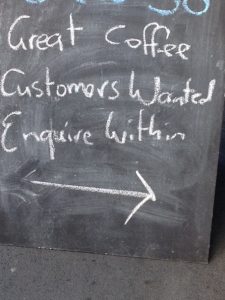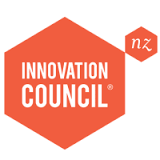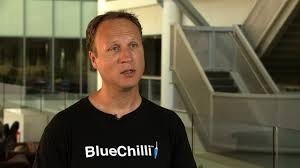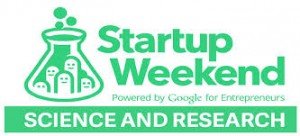 It was very disappointing to read Mike O’Donnell’s recent comments about the supposedly tragic state of New Zealand’s innovation ecosystem. Now whilst I respect what those guys have built, it seems like not a year goes by without a member of the TradeMe cabal bagging our community and what we have achieved. It’s starting to get a bit old.
It was very disappointing to read Mike O’Donnell’s recent comments about the supposedly tragic state of New Zealand’s innovation ecosystem. Now whilst I respect what those guys have built, it seems like not a year goes by without a member of the TradeMe cabal bagging our community and what we have achieved. It’s starting to get a bit old.
Let’s deal with the obvious hypocrisy first. O’Donnell draws on a marine ecosystem analogy that he picked up at a recent conference. He describes startup companies as bottom feeding low life species, feeding off the stronger, larger fish in the ocean (read – TradeMe, Xero). Like his mates previously, O’Donnell goes on to lament the confusing proliferation of incubators and accelerator opportunities available to aspiring startup companies. However there’s conveniently no mention of the actual economic value created or new jobs that have been delivered by such institutions.
On the other hand, he loudly sings the praises of two companies led by extraordinary women and illuminates them as exemplars of real startups that deserve success. He’s right about both of them of course, but he conveniently neglects to mention that both companies received a leg-up from the very ecosystem that he dislikes so much. Furthermore, some of the the commentators backing his position are folks who also benefited from being part of the startup community. That’s hard to reconcile.
Opposition to state funding of startup programmes springs from a deeply held philosophical belief in some quarters that only well funded companies with friends in the right places should be allowed to succeed. Now it’s very unlikely that the incoming Labour government will roll back recently announced funding for accelerator programmes, but they will no doubt be reviewing how to deal with promoting innovation and entrepreneurship in New Zealand in the future. That’s an opportunity, so understandably Mike wants to influence that debate. But I disagree with his position and here’s why.
Whilst many of us agree that the startup venture model is less than perfect, that’s not a good reason to pull public funding from the sector. As a nation we must diversify way from commodities and move up the value chain. Let’s take the wins when they come and accept there will also be some failures along the way. Government support comes in many forms across the spectrum from enabling academic research commercialisation through to co-funding accelerators. Arguably we are not doing enough compared to others globally. I don’t see any criticism of Israel or Australia, nations that actively and successfully apply substantial government support to their innovation ecosystems.
Having taken a company through the Lightning Lab accelerator this year (and bootstrapped a previous tech company from nothing), I guess that makes me one of the “bottom feeding” losers mentioned in the article. I find that analogy quite offensive, especially since (for the record) we received no funding handouts whatsoever within this year’s Lab. Let’s work together to achieve good outcomes for New Zealand and ensure there are a mix of great programmes with excellent community partnerships in place and that solid companies with real customers get oxygen to move forward.
Postscript:
Mike O’Donnell reached out to me recently and we had a chat about the context of the term “bottom feeder” that he used in his article. Mike sees bottom feeding species (such as Snapper) as the healthy foundation of the ocean ecology and I accept that his analogy was not intended to be derogatory. As I originally mentioned, we all have huge respect for what has been achieved by companies that have a connection to the TradeMe story. There’s a role for all kinds of fishes in the ocean. We should try to work together to ensure sustainability and longevity of the fishery.
Paul Spence is a commentator and serial entrepreneur, a co-founder of Wellington, New Zealand based technology ventures iwantmyname and Polanyio and a founding mentor with Startup Weekends and Lightning Lab. You can follow Paul on Twitter @GeniusNet or sign up for a free weekly digest of startup, tech and innovation related events curated by him through New Zealand Startup Digest.

 It seems like half a lifetime ago that myself and
It seems like half a lifetime ago that myself and  Recently I had the great pleasure of being guest of honour at
Recently I had the great pleasure of being guest of honour at  Last year I attended the final pitching session at Get Funded 36, a compressed accelerator course for budding entrepreneurs from within the academic community. Callaghan have produced a
Last year I attended the final pitching session at Get Funded 36, a compressed accelerator course for budding entrepreneurs from within the academic community. Callaghan have produced a  November 2015 was a bumper month for
November 2015 was a bumper month for 


 A recent article in the Washington Post implored society to
A recent article in the Washington Post implored society to